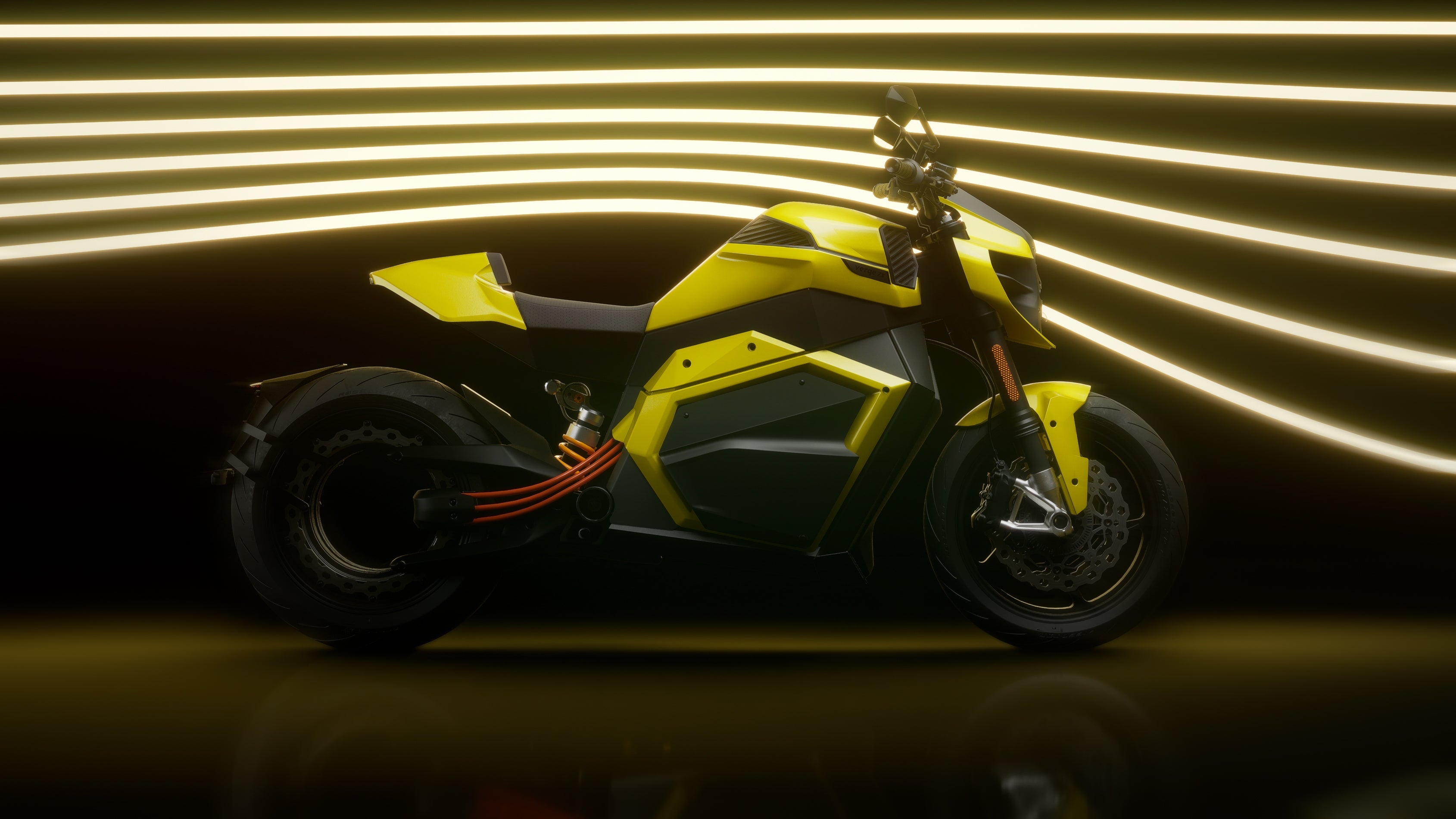Marko Lehtimaki - a software entrepreneur - admits that he and his co-founders knew very little about motorcycles when they launched Verge. What they did know, after testing all the EV motorcycles on the market, was that none were as good as they could be: with the battery set over the motor, invariably they had poor range, but were also top-heavy and handled badly. It was Verge’s solution that, he says, got them called crazy. That was to set a bigger battery to give a lower centre of gravity and - here’s the crazy bit - integrate the motor into the rear wheel.
But it works. Verge - which recently opened its first stores in London and in California - has been called the ‘Apple of motorcycles’ for its plans to completely rethink the motorcycle with its first models, the TS Pro and Ultra. Take, for example, the latter’s six cameras and hi-res front and rear radar. That’s a first for the motorcycle industry, “which is ludicrous,” says Lehtimaki, “but it’s really the wild west out there [in the industry] when it comes to rider safety at the moment”.
Or take the fact that while many motorcycles are a mish-mash of off-the-shelf components, Verge makes almost everything it uses - excluding brakes and suspension but including even the batteries - in-house. That was another idea lifted from Apple, or from Tesla, both fully vertically-integrated companies. Or, like Tesla, the fact that Verge sells direct to its customers through its own stores. The rest of the motorcycle industry? That typically uses third-party dealerships. The result, Lehtimaki argues, is that manufacturers don’t get to speak much to actual riders. They don’t really know what they want.
Verge reckons what more and more people want is something that, as Lehtimaki argues, democratises riding, just as Apple democratised personal computing. Sure, there are those riders who like all the oily hands and greasy maintenance, much - and Lehtimaki speaks from personal experience here - there are those who like fine-tuning their laptop’s operating systems. But, he reckons, there are many more who want something like an iPod on wheels: sleek, self-contained, intuitive, plug-and-play. Indeed, he says that so far some 30% of people booking Verge test-rides don’t even have a motorcycle licence yet.
“The motorcycle industry is stuck on doing things the way it has always done,” says Lehtimaki. And in being stuck it’s missing the opportunity to appeal to a new generation of riders. That doesn’t mean Verge’s has solved every problem, but it’s working on it. Next up? Using nano-tech to devise helmets and protective motorcycle clothing that doesn’t make every rider look like The Terminator.

